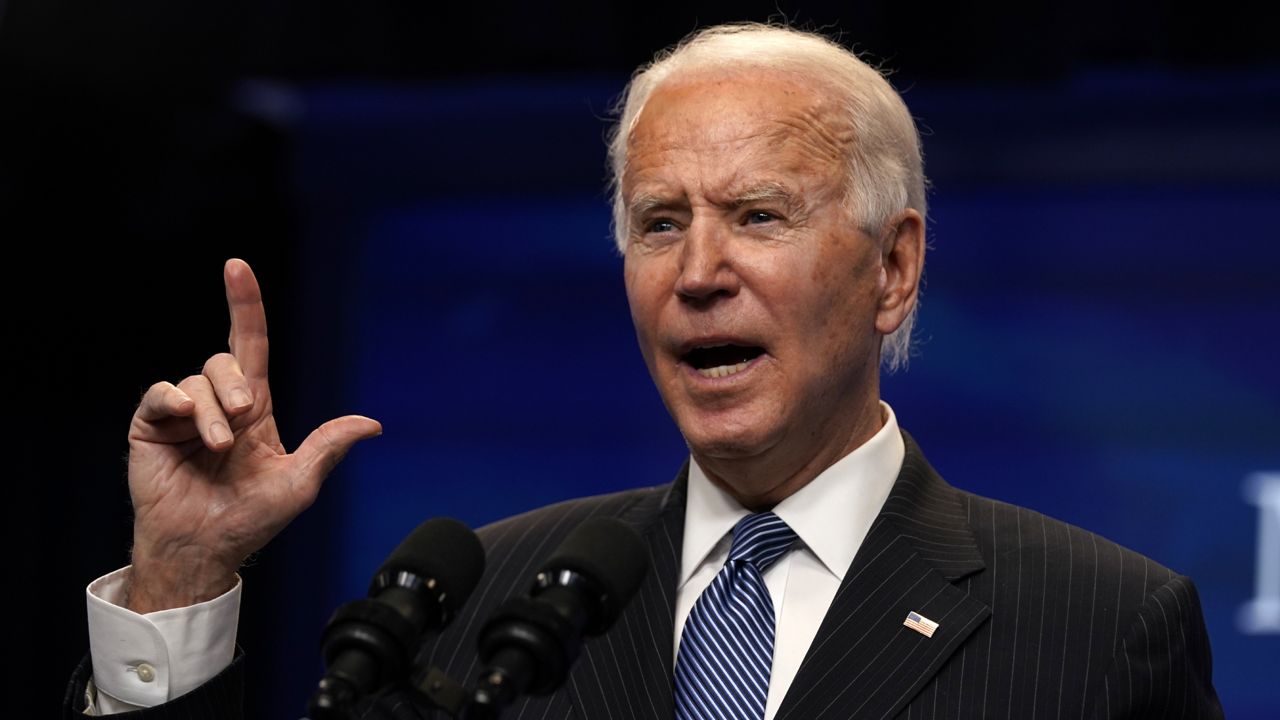President Joe Biden on Monday signed an executive order aimed at boosting the American economy, saying his administration will “reward work, not wealth in this country.”
The “Made in America” executive order is the latest in a slew of actions President Biden took immediately upon taking office, and it emphasized the new administration’s focus on increasing American manufacturing jobs while simultaneously moving towards a more green economy.
“Today, I'm taking the first steps in my larger Build Back Better recovery plan that invests in American workers, unions, and businesses up and down the supply chain,” Biden said Monday, adding: “We will invest hundreds of billions of dollars in buying American product and materials to modernize our infrastructure so our competitive strength will increase in a competitive world.”
Biden reiterated Monday that he believes the country is in a precarious spot and that relief is urgently needed, even as he dismissed the possibility of embracing a scaled-down bill to secure passage faster. Among the features of the stimulus plan are a national vaccination program, aid to reopen schools, direct payments of $1,400 to individuals and financial relief for state and local governments.
"Time is of the essence,” Biden said. "I am reluctant to cherry-pick and take out one or two items here."
The executive order makes specific changes to the decades-old Buy American and Buy America statutes, which Biden said go further than any previous administration. The Buy American Act of 1933 requires federal agencies to buy products manufactured in the United States if and when the procurement is intended for public use, and if there is abundant domestic supply of the required materials.
The executive order signed Monday aims to close loopholes in both of these statutes, namely by making it harder for federal agencies to buy foreign goods. Any federal request for a waiver from Buy American requirements will be subject to a central review process, and any relevant waivers will be posted on a public website.
Biden’s order would modify the rules for the Buy American program, making it harder for contractors to qualify for a waiver and sell foreign-made goods to federal agencies. It also changes rules so that more of a manufactured good’s components must originate from U.S. factories. America-made goods would also be protected by an increase in the government’s threshold and price preferences, the difference in price over which the government can buy a foreign product.
It’s an order that channels Biden’s own blue-collar persona and his promise to use the government’s market power to support its industrial base, an initiative that former President Donald Trump also attempted with executive actions and import taxes.
Biden also announced the new position of "Director of Made in America" at the White House Office of Management and Budget, who the president said will "oversee our all-of-government Made in America initiative."
While not mentioning President Trump by name, Biden criticized his predecessor for not taking Buy America initiatives "seriously enough,” and for allowing the government to bypass requirements.
"I know the previous president went into office promising to buy american, but here is why this is different and not the same," Biden said. "We are setting clear explanations and policies. The core issue with a centralized, coordinated effort."
Monday’s order was also aimed at increasing factory jobs, which have slumped by 540,000 since the pandemic began last year.
"America can’t sit on the sidelines in the race for the future," Biden said before signing the order in the Eisenhower Executive Office Building. "We’re ready, despite all we’re facing."
Monday’s order will likely take 45 days or longer to make its way through the federal bureaucracy, during which time wrangling with Congress could produce a new aid package. That would be a follow-up to the roughly $4 trillion previously approved to tackle the economic and medical fallout from the coronavirus.
The Associated Press contributed to this report.
